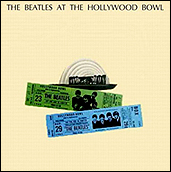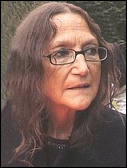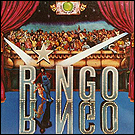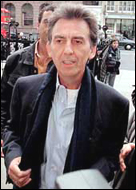1961-The Beatles perform at the Top Ten Club, Reeperbahn, Hamburg, West Germany.
1962-The Beatles perform at the Star-Club, Hamburg, West Germany.
1962-The first Beatles Fan Club is formed in Liverpool.
1965-A bootlegged copy of The Beatles on the BBC's "Big Night Out" finds it's way to a TV station in Cleveland, Ohio. No one knows how it got there.
 1966-The Beatles in the recording studio (Studio Two, EMI Studios, London). Recording vocal overdubs for I'm Only Sleeping, then a reduction mix-down to create vacant tracks for more overdubs.
1966-The Beatles in the recording studio (Studio Two, EMI Studios, London). Recording vocal overdubs for I'm Only Sleeping, then a reduction mix-down to create vacant tracks for more overdubs.1969-The Beatles in the recording studio (Olympic Sound Studios, London). The first recordings for the loose "medley" of songs that comprise side two of the album Abbey Road. The Beatles record 36 takes of You Never Give Me Your Money, a song inspired by The Beatles' / Apple's financial difficulties. After the basic track is perfected, overdubs are recorded.
 1977--Release of The Beatles’ LP, The Beatles at the Hollywood Bowl in the US (Capitol) and the UK (Parlophone).
1977--Release of The Beatles’ LP, The Beatles at the Hollywood Bowl in the US (Capitol) and the UK (Parlophone). Songs: Twist and Shout, She's A Woman, Dizzy Miss Lizzie, Ticket to Ride, Can't Buy Me Love, Things We Said Today*, Roll Over Beethoven*, Boys*, A Hard Day's Night, Help!, All My Loving*, She Loves You*, and Long Tall Sally*. (Recorded live at the Hollywood Bowl August 23, 1964* and August 30, 1965.
Highest chart position in the US is #2; highest chart position in the UK is #1. For over a decade these recordings had languished in the Capitol Records vaults, having been determined by all concerned at the time that they were useless. When Capitol contacted George Martin about the tapes, and he realized that he could clean them up, he contacted all the former Beatles for their approval. He says: “I rang up John Lennon and told him about the recordings. I told him I was very enthusiastic, because I felt the album would be a piece of history which should be preserved. I said to him, ‘I want you to hear it after I’m done. You can be as rude as you like, but if you don’t like it, give me a yell.’ I spoke to him the following day, and he was delighted with it.”
 1983--Mike Oldfield’s, Moonlight Shadow, another tribute to John, is released.
1983--Mike Oldfield’s, Moonlight Shadow, another tribute to John, is released.1985--People magazine features an article about John Lennon's half-sister Julia Dykins Baird. Mention is made about two other half-sisters of Lennon's: Jacqueline Gertrude Dykins and Victoria Elizabeth Lennon (whose father is unidentified; she was given up for adoption shortly after her birth).

1991--US re-release of the Ringo Starr album, Ringo, on CD (Capitol). Includes bonus tracks Down and Out, It Don't Come Easy, and Early 1970.
1998--George testifies in an English court in another attempt by The Beatles to prevent a new release of the “Star-Club tapes.” Harrison calls the recording the "crummiest" ever in the group's career, referring to the performance as "a lot of teen-agers getting drunk and playing rock and roll." The man who made the recording of The Beatles on December 31, 1962, Ed “King-Size” Taylor, had previously testified that John had given him permission to make the recording.
In rebuttal, The Beatles' lawyer points out that The Beatles were contracted to EMI at the time, and Harrison remarks: "One drunken person recording another bunch of drunks does not constitute business deals.
The only person who allegedly heard anything about it is the one person who is dead, who can't actually come here and say it's a load of rubbish." When asked if Joh
 n was the undisputed leader of The Beatles, George said: “We had a
democratic thing going between us. Everyone had to agree with
everything that was done, whether it was a concert in Liverpool or to go
to Hamburg.” He goes on to say that John turned to him for musical
advice: “He had a little guitar with three strings tuned like a banjo. I
had to show him the chords. When I first met him, I was very young, but
so was he. He was 17 and I was maybe 14 or 15. But by the time we were
in Hamburg, I’d grown up a lot, and I could certainly hold my own
against him. He was the loudest, the noisiest, and the oldest. He could
be wrong about something, but try and win the argument just by being
loud.”
n was the undisputed leader of The Beatles, George said: “We had a
democratic thing going between us. Everyone had to agree with
everything that was done, whether it was a concert in Liverpool or to go
to Hamburg.” He goes on to say that John turned to him for musical
advice: “He had a little guitar with three strings tuned like a banjo. I
had to show him the chords. When I first met him, I was very young, but
so was he. He was 17 and I was maybe 14 or 15. But by the time we were
in Hamburg, I’d grown up a lot, and I could certainly hold my own
against him. He was the loudest, the noisiest, and the oldest. He could
be wrong about something, but try and win the argument just by being
loud.” When asked what he remembered about the Star-Club, he says: “It was a really rough place and the waiters used to let off tear-gas to get rid of the sailors if a fight started. I kept well out of it. But there were also some quite nice people who went to the club. They weren’t all gangsters and transvestites...there were teenagers and art students. But by 2:00 a.m. on Saturday night, it was hell!”

No comments:
Post a Comment